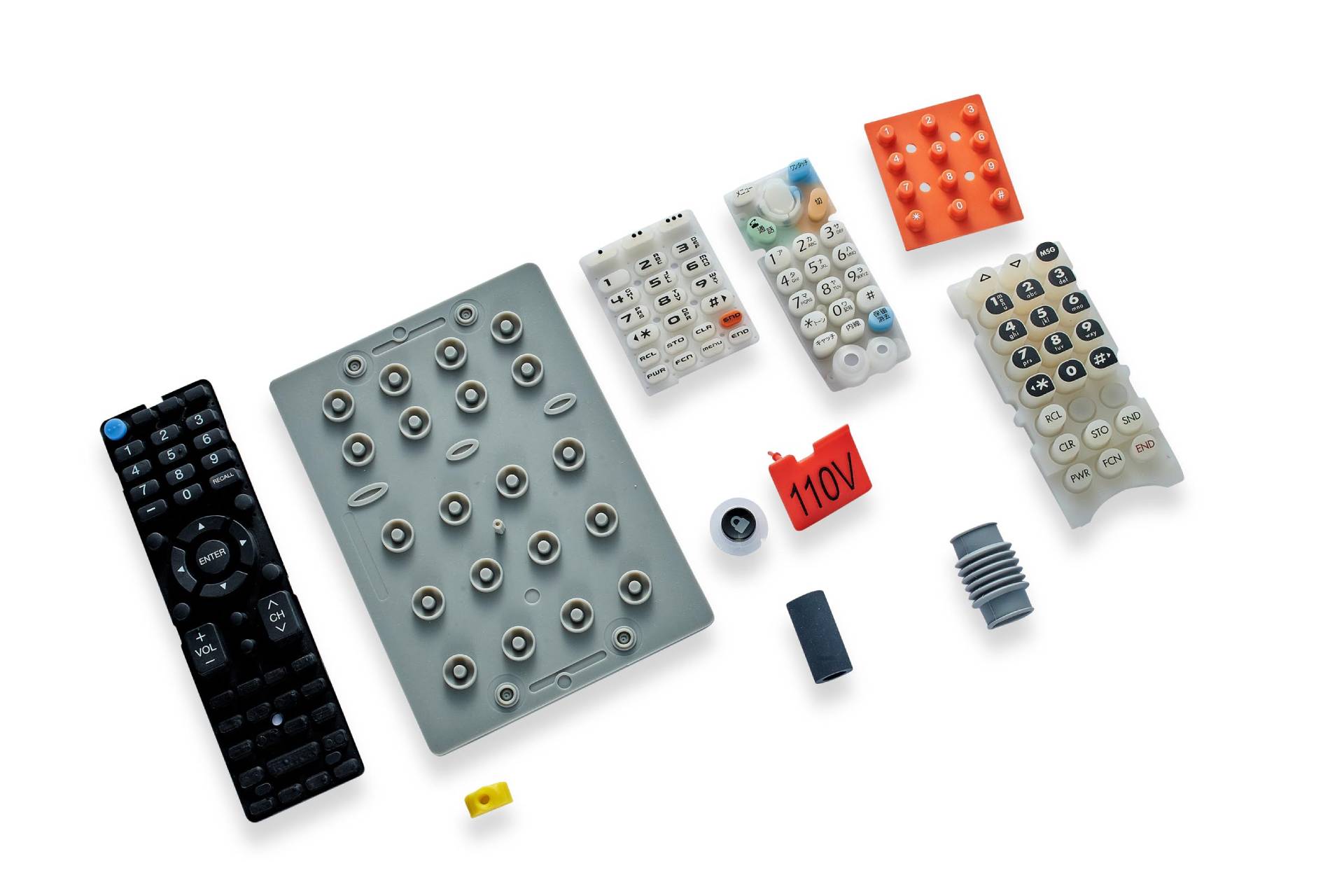How Plastic Nameplates Streamline Organization in Busy Workspaces
How Plastic Nameplates Streamline Organization in Busy Workspaces
Blog Article
How Plastic Nameplates Are Produced: A Comprehensive Guide to Their Manufacturing Process
The manufacturing of plastic nameplates involves several exact steps, beginning from the choice of appropriate materials to the final complements. Each phase is important, ensuring the product satisfies certain requirements for resilience and aesthetic appeals. Various manufacturing strategies play a substantial function in crafting these nameplates. Recognizing these processes can clarify the complexities behind what could look like a straightforward item. What variables contribute to the top quality and modification of these nameplates?
Recognizing Plastic Materials Made Use Of for Nameplates

The Design Process: From Principle to Model
The style process for plastic nameplates begins with a clear idea that overviews the general creation. Designers collaborate with clients to define the function, style, and certain requirements of the nameplate. This initial stage consists of brainstorming sessions, mapping out concepts, and selecting shades and fonts that straighten with branding goals.Once the concept is developed, designers utilize computer-aided design (CAD) software program to create thorough digital depictions. These prototypes allow for visualization and adjustments before moving on. Responses from stakeholders is important throughout this stage, as it assists refine the layout to fulfill expectations.After finalizing the digital prototype, a physical design might be produced, frequently through strategies like 3D printing. This concrete representation makes it possible for additional assessment of looks and performance. Generally, the design process is a vital step that lays the structure for the reliable manufacturing of high-grade plastic nameplates.
Reducing and Forming the Plastic
In the cutting and shaping phase of plastic nameplate production, the choice of materials plays a necessary duty in establishing the final product's top quality and toughness (Plastic Nameplates). Different precision cutting strategies, such as laser cutting and CNC machining, guarantee that the plastic is formed with accuracy and consistency. This mix of cautious product selection and advanced reducing methods is vital for generating top quality nameplates

Product Selection Refine
Selecting the ideal material is vital for generating premium plastic nameplates. Numerous sorts of plastics are available, each offering unique benefits and characteristics. Common options include acrylic, polycarbonate, and PVC. Acrylic is preferred for its clarity and UV resistance, making it excellent for outside applications. Polycarbonate, understood for its resilience and influence resistance, is suitable for settings that need boosted protection. PVC is often picked for its cost-effectiveness and convenience in layout. The selection procedure likewise takes into consideration elements such as shade, density, and surface area coating, which can significantly influence the last appearance and performance of the nameplate. Eventually, the selected product has to straighten with the planned usage and visual objectives of the plastic nameplate.
Precision Trimming Techniques
While picking the appropriate material lays the groundwork, precision cutting strategies play a crucial duty in forming the plastic nameplates into their final types. Different techniques, including laser cutting, CNC milling, and pass away reducing, are utilized to achieve accuracy and consistency. Laser reducing utilizes focused light to generate intricate layouts and tidy sides, ideal for complicated patterns. CNC milling provides adaptability by getting rid of excess material with accuracy, suiting different thicknesses and forms. Die cutting, on the various other hand, permits mass manufacturing of uniform items, enhancing efficiency. Each method is chosen based on the style specs and the preferred surface, making sure that the last product satisfies high quality standards and client assumptions while preserving toughness and visual appeal.
Printing Strategies for Modification
Just how can makers achieve accurate and vivid layouts on plastic nameplates? The response hinges on different printing techniques tailored for customization. Digital printing has actually obtained appeal due to its capacity to produce high-resolution photos and intricate styles straight onto plastic surface areas. This method enables quick turnaround times and marginal arrangement prices, making it ideal for brief runs and personalized orders.Screen printing stays an additional widely made use of method, particularly for larger amounts. It includes developing a stencil and using layers of ink, resulting in abundant shades and sturdiness. UV printing, which utilizes ultraviolet light to cure the ink, is also reliable, providing exceptional attachment and resistance to fading.Additionally, pad printing provides adaptability for irregularly designed nameplates, permitting detailed styles on difficult surfaces. These printing techniques allow makers to satisfy diverse client requires while making certain quality and durability in their plastic nameplate products.
Surface Therapies and Finishing Options

Quality Assurance Steps in Manufacturing
Guaranteeing the highest possible standards of top quality control throughout the manufacturing of plastic nameplates is vital for preserving product integrity and client contentment. Manufacturers carry out extensive assessment procedures at numerous phases of the production process. Originally, basic materials undergo complete screening to verify they fulfill specs for durability and shade consistency. Throughout the molding phase, automated systems keep an eye on specifications such as temperature and pressure to avoid defects.In addition, visual inspections are carried out to recognize any surface area imperfections or imbalances. When the nameplates are produced, they undergo useful tests, including attachment tests for printed aspects and stress and anxiety tests for longevity. Quality control teams often employ analytical sampling methods to assess batches, making sure that any kind of deviations from criteria are without delay dealt with. This comprehensive approach not just enhances product high quality yet additionally promotes trust with clients, affirming the supplier's dedication to quality in every nameplate generated.
Packaging and Circulation of Finished Nameplates
The product packaging and circulation of completed plastic nameplates are vital steps in guaranteeing they reach customers in excellent condition. Different product packaging products are picked to secure the nameplates throughout transportation, while delivering approaches are meticulously selected based upon effectiveness and cost-effectiveness. Additionally, efficient storage space options are implemented to keep top quality until the nameplates are delivered.
Product Packaging Products Made Use Of
When distributing completed plastic nameplates, picking suitable packaging products is necessary to ensure their security during transit. Frequently utilized products include bubble wrap, foam extra padding, and cardboard boxes, all made to cushion the nameplates versus shocks and impacts. Bubble cover gives a flexible barrier, while foam cushioning assurances that nameplates stay firmly in position, reducing the risk of scratches or breakage. Additionally, strong cardboard boxes are used to contain the nameplates, supplying structural assistance and defense from exterior components. Labels might be related to indicate managing guidelines blog here or vulnerable materials, even more improving safety and security during transportation. Generally, utilizing premium product packaging materials substantially adds to the integrity and discussion of the completed plastic nameplates upon arrival at their destination.
Delivering Techniques Utilized
Efficient distribution of ended up plastic nameplates relies on various shipping techniques that ensure secure and timely shipment. Business usually utilize courier solutions, freight shipping, and postal services, depending on the size, weight, and destination of the bundles. For local distributions, courier services supply fast transit, guaranteeing nameplates get to consumers quickly. For bigger orders, products shipping is liked, utilizing trucks or shipping containers to carry bulk quantities efficiently. Postal solutions work as a cost-effective choice for smaller shipments, specifically for residential deliveries. All delivery techniques focus on protective product packaging to avoid damage throughout transit. Tracking systems are likewise made use of to monitor shipments, supplying clients with real-time updates and reassurance concerning the condition of their orders.
Storage Solutions Implemented

Regularly Asked Concerns
What Kinds Of Services Commonly Use Plastic Nameplates?
Plastic nameplates are frequently utilized by website here numerous businesses, consisting of workplaces, health centers, manufacturing facilities, and colleges. These nameplates serve necessary functions such as recognition, info display screen, and branding, adding to organizational efficiency and specialist look across diverse environments.
Just how Long Does the Entire Production Refine Take?
The manufacturing procedure duration differs based upon complexity and quantity, typically ranging from a couple of days to numerous weeks. Aspects influencing this timeline include style approval, material schedule, and production methods used by the business.
Can Plastic Nameplates Be Recycled After Use?
Plastic nameplates can be recycled, offered they are made from recyclable products. However, the schedule of reusing programs and local laws may impact their recyclability. Appropriate disposal techniques are vital to assure reliable recycling.
What Are the Ecological Effects of Plastic Nameplate Manufacturing?
The environmental influences of plastic nameplate production consist of carbon discharges, resource deficiency, and contamination from producing processes. Plastic Nameplates. In addition, improper disposal adds to plastic waste, adversely affecting ecosystems and wild animals, highlighting the demand for lasting practices
Exist Any Kind Of Safety And Security Worry About Plastic Nameplates?
Security problems concerning plastic nameplates primarily include prospective chemical exposure throughout production and the danger of products breaking down in time, which might cause dangerous substances being launched, affecting both human health and the setting. While different materials can be used for nameplates, plastic continues to be a prominent selection due to its adaptability and resilience. In the cutting and forming phase of plastic nameplate manufacturing, the choice of products plays a vital function in identifying the last item's high quality and longevity. Picking the ideal material is vital for creating top notch plastic nameplates. While choosing the suitable material lays the groundwork, accuracy reducing methods play an essential role in shaping the plastic nameplates right into their last types. When distributing ended up plastic nameplates, choosing ideal packaging products is necessary to assure their protection throughout transportation.
Report this page